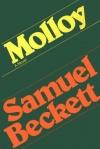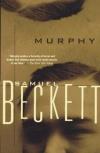
Malone Dies is a novel by Samuel Beckett. It was first published in 1951, in French, as Malone meurt, and later translated into English by the author. The second novel in Beckett's "Trilogy". Along with the other two novels that compose the trilogy, it marked the beginning of Beckett's most significant writing, where …

Molloy is a novel by Samuel Beckett written in French and first published by Paris-based Les Éditions de Minuit in 1951. The English translation, published in 1955, is by Beckett and Patrick Bowles.

Watt was Samuel Beckett's second published novel in English, largely written on the run in the south of France during the Second World War and published by Maurice Girodias's Olympia Press in 1953. A French translation followed in 1968.

Krapp's Last Tape is a one-act play, in English, by Samuel Beckett. With a cast of one man, it was written for Northern Irish actor Patrick Magee and first titled "Magee monologue". It was inspired by Beckett's experience of listening to Magee reading extracts from Molloy and From an Abandoned Work on the BBC Third …

Murphy, first published in 1938, is an avant-garde novel as well as the third work of prose fiction by the Irish author and dramatist Samuel Beckett. The book was Beckett's second published prose work after the short-story collection More Pricks than Kicks and his unpublished first novel Dream of Fair to Middling …

Samuel Beckett was awarded the Nobel Prize for Literature n 1969; his literary output of plays, novels, stories and poetry has earned him an uncontested place as one of the greatest writers of our time. "Endgame, " originally written in French and translated into English by Beckett himself, is considered by many …

 English
English Español
Español Deutsch
Deutsch
